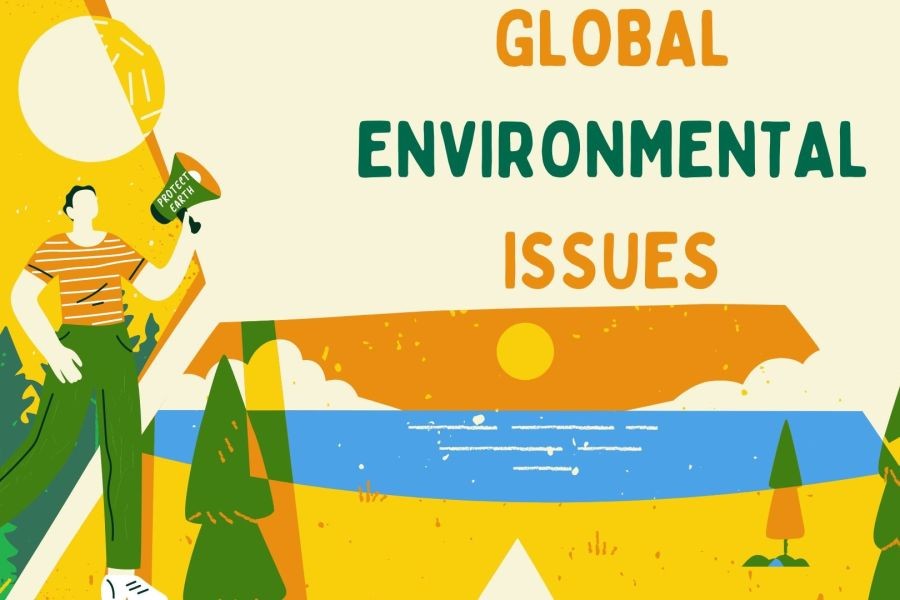New Zealand, renowned for its breathtaking landscapes and commitment to sustainability, finds itself in a unique position to influence global environmental policy. As the world grapples with climate change, the role of nations like New Zealand becomes increasingly vital. This article delves into the top five ways New Zealand can shape global environmental policy, offering insights that are not only actionable but also deeply relevant to tax specialists and policymakers. By leveraging its economic strengths, innovative industries, and progressive policies, New Zealand can set a benchmark for environmental stewardship. Let’s explore how these strategies can be implemented effectively.
1. Embracing renewable energy Innovations
New Zealand is a leader in renewable energy, with over 80% of its electricity generated from renewable sources, according to the Ministry of Business, Innovation and Employment (MBIE). This commitment positions the country as a model for sustainable energy practices. However, the debate on how to expand this influence globally is multifaceted.
Debate: Global Influence vs. Local Focus
Advocates argue that New Zealand should actively promote its renewable energy technologies and expertise internationally. This could involve exporting technological innovations and collaborating on international projects. Conversely, critics caution against shifting focus from local needs, emphasizing the importance of ensuring domestic energy security and affordability first.
Pros and Cons Evaluation
- Pros: Exporting renewable technologies can bolster the economy and position New Zealand as a global leader in sustainable energy.
- Cons: Focusing too much on international markets could lead to neglecting local energy needs and potential backlash from domestic stakeholders.
Industry Insight: The New Zealand Wind Energy Association suggests that expanding into offshore wind farms could significantly increase energy production and export potential, offering a balanced approach to the global-local focus.
2. Advancing Sustainable Agriculture Practices
Agriculture is a cornerstone of New Zealand's economy, contributing approximately 5.1% to the GDP as per Stats NZ. The country's innovative approaches to sustainable farming can set global standards.
Pros vs. Cons of Sustainable Agriculture
- Pros: Implementing sustainable practices can reduce environmental impact, enhance food security, and increase global competitiveness.
- Cons: Transition costs and resistance from traditional farming sectors pose significant challenges.
Case Study: Dairy NZ's Efforts
Problem: New Zealand's dairy sector faced criticism for its environmental impact, particularly concerning water pollution.
Action: Dairy NZ launched the "Sustainable Dairying: Water Accord," focusing on reducing nutrient runoff and improving water quality.
Result: The initiative led to a 30% reduction in nutrient leaching and substantially improved water quality in targeted areas.
Takeaway: Sustainable agriculture practices not only enhance environmental health but also improve the industry's long-term viability.
3. Leading in Carbon Neutral Policies
New Zealand's Zero Carbon Act, aiming for net-zero carbon emissions by 2050, serves as a robust framework that other countries can emulate. This policy is pivotal in addressing climate change globally.
Debate: Feasibility vs. Ambition
While the ambition of reaching net-zero emissions is commendable, critics question its feasibility given the current economic dependencies on carbon-intensive industries.
Pros and Cons Evaluation
- Pros: Achieving carbon neutrality can enhance global standing and attract environmentally conscious investments.
- Cons: The transition may incur high costs and economic disruptions, especially in the short term.
Expert Insight: The Reserve Bank of New Zealand emphasizes the need for gradual, well-planned economic shifts to support carbon neutrality without destabilizing the economy.
4. Promoting Eco-Tourism
With tourism being a major economic contributor, New Zealand's focus on eco-tourism can influence global tourism practices. The industry aims to balance economic growth with environmental preservation.
Contrasting Views: Mass Tourism vs. Eco-Tourism
While mass tourism offers immediate economic benefits, its long-term environmental costs are substantial. Eco-tourism, although slower to develop economically, aligns with sustainability goals.
Pros and Cons Evaluation
- Pros: Eco-tourism preserves natural resources, enhances national branding, and attracts a niche market willing to pay a premium for sustainable experiences.
- Cons: The initial investment is higher, and the niche market may not immediately replace the revenue from mass tourism.
Case Study: Fiordland National Park
Problem: Fiordland faced environmental degradation due to increasing tourist numbers.
Action: The park implemented strict visitor limits and promoted eco-friendly tours.
Result: Visitor satisfaction increased, and environmental quality improved, showcasing the benefits of sustainable tourism.
5. Influencing Global Environmental Policy through Multilateral Engagement
New Zealand's active participation in international environmental agreements positions it as a key player in shaping global policy. By leveraging its reputation and expertise, the country can advocate for stronger, more cohesive global environmental policies.
Debate: Independence vs. Collaboration
Some argue for prioritizing national interests, while others emphasize the importance of collaboration to address global challenges effectively.
Pros and Cons Evaluation
- Pros: Multilateral engagement can lead to more comprehensive and enforceable global policies.
- Cons: Balancing national interests with global commitments can be politically challenging.
Industry Insight: According to the New Zealand Institute of International Affairs, engaging in multilateral agreements can enhance New Zealand's influence and ensure its interests are reflected in global policy decisions.
Conclusion: Final Takeaway & Call to Action
New Zealand stands at a pivotal moment where it can significantly influence global environmental policy. By focusing on renewable energy, sustainable agriculture, carbon neutrality, eco-tourism, and multilateral engagement, the country can set a precedent for others to follow. These strategies not only contribute to global sustainability but also strengthen New Zealand's economy and international standing. As tax specialists, understanding these dynamics is crucial, as they shape the economic and regulatory landscape. Embrace these opportunities to position New Zealand as a leader in global environmental policy. What are your thoughts on New Zealand's role in shaping a sustainable future? Share your insights below!
People Also Ask (FAQ)
- How does New Zealand influence global environmental policy? New Zealand leverages its renewable energy expertise, sustainable agriculture practices, and active participation in international agreements to shape global environmental policy.
- What are the biggest misconceptions about New Zealand's environmental efforts? A common myth is that New Zealand's environmental impact is negligible. However, its innovative policies have a significant global influence.
- Who benefits the most from New Zealand's eco-tourism focus? Eco-tourism benefits local communities, environmental conservation efforts, and tourists seeking sustainable travel experiences.
Related Search Queries
- New Zealand renewable energy policies
- Sustainable agriculture practices in New Zealand
- Impact of Zero Carbon Act on NZ economy
- Eco-tourism benefits in New Zealand
- Global environmental agreements and New Zealand































